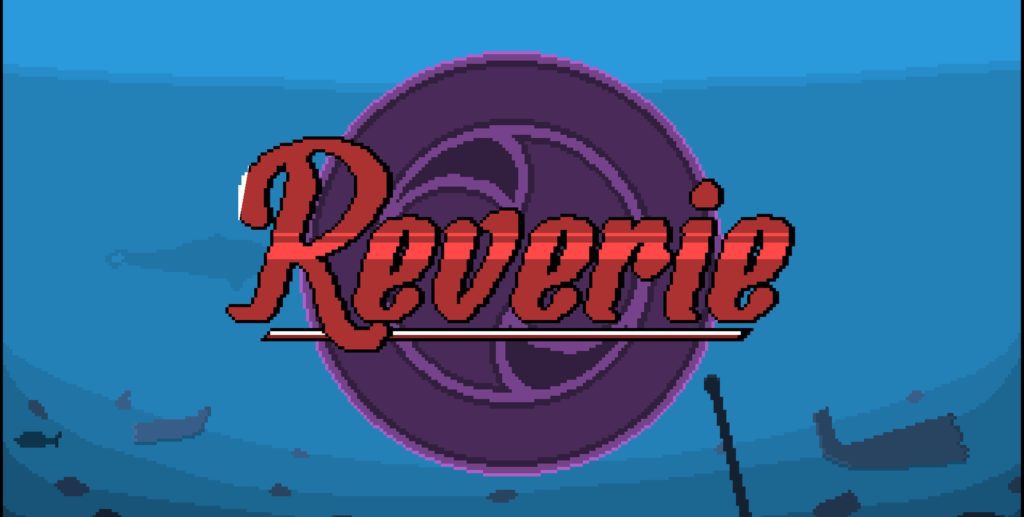
Once in a great while, a game comes along that captures the hearts and minds of gamers. Just as with a great novel or movie, a well-crafted game can resonate with us on a basic level, creating fond memories at its very mention. That game is The Legend of Zelda for the NES. Wait. I mean, Startropics for the NES. No, hold on. That’s not it. It’s Earthbound for the Super Nintendo. Augh! And that’s basically the feeling you get when you play Reverie, the new title for the PS4 and Vita from New Zealand’s Rainbite Limited. For any retro gaming fan, Reverie feels like the love child of Startropics and The Legend of Zelda which came out looking like Earthbound. For those of you that don’t play retro titles, suffice it to say that the game is quirky, entertaining, and pleasantly vintage looking, almost as if it was an undiscovered Super Nintendo release. By the way, for those of you already sold on Reverie just from the above paragraph, there are some spoilers in here, especially about what some of the early bosses are, so if you don’t want to know, simply skip to the last paragraph, or even better, just go buy it because you’ll likely love it.
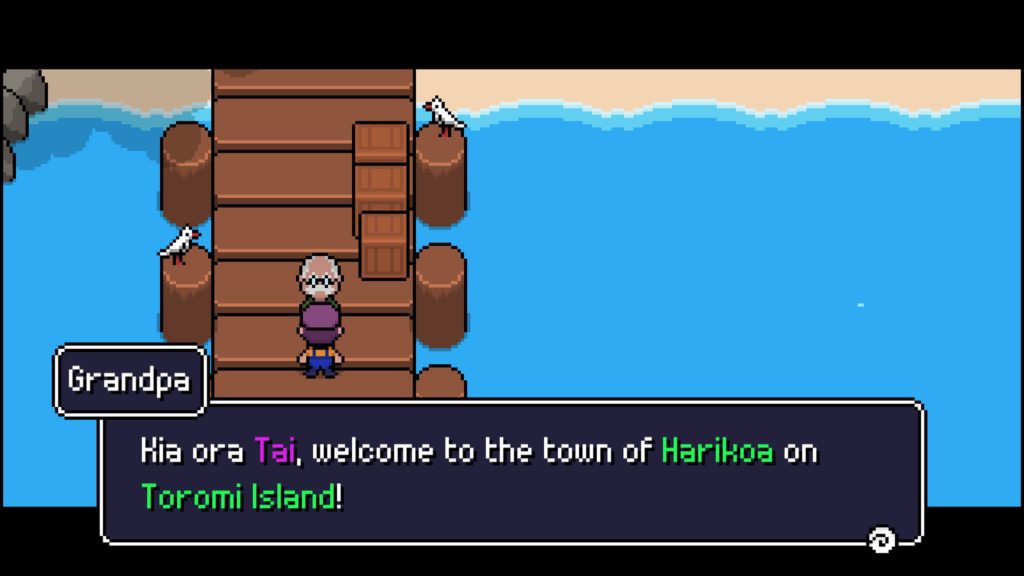
In Reverie, you play Tai, a boy visiting his grandparents on Toromi Island, which is oddly and inconveniently threatened by angry gods who had previously left the island’s inhabitants alone until you arrived. Don’t look for too much logic here in the storyline, but it is actually derived from Maori myths, the Maori being the indigenous Polynesian inhabitants of New Zealand. Naturally, you head out on a quest to find and pacify the gods of Toromi Island alone, as boys of a certain age are wont to do, and no one seems to think twice about it. Hell, your grandparents practically push you out the door! And that’s the magic of this game. It doesn’t take itself too seriously. It’s a game, designed to be fun and to evoke the feelings that many of us felt when we played some of the classic console games. Graphically, Reverie is mostly reminiscent of Earthbound, with a healthy dose of Startropics tossed in there. Those clean lines and simple graphics force a player to focus on the gameplay experience rather than being distracted as we often are with the shiny, pretty bits in modern titles. Simple is definitely not a bad thing in this case, actually contributing to the experience rather than taking away from it.
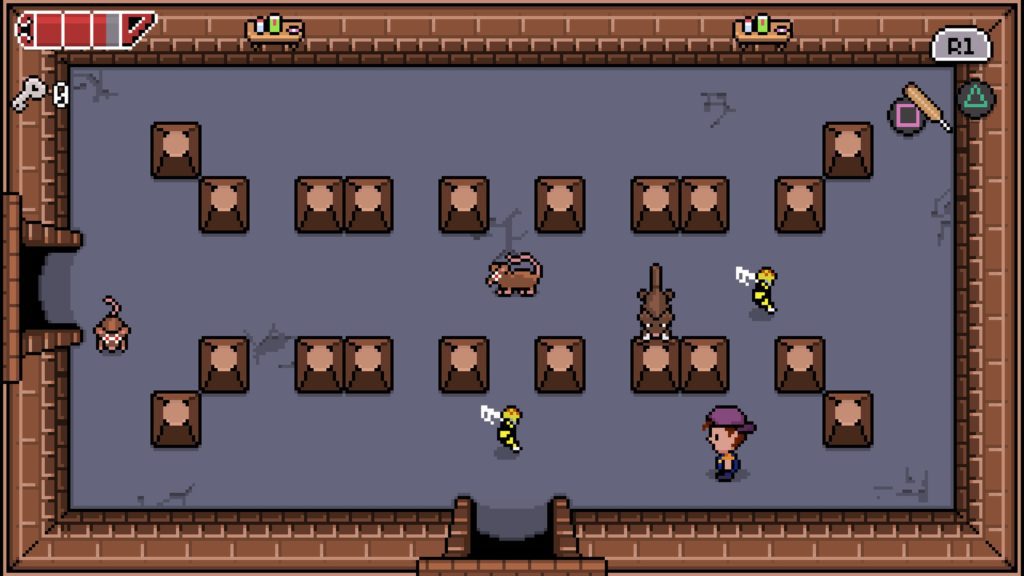
And speaking of gameplay, Reverie has it in spades! While it might look like Earthbound, dialogue jokes and all, most of its gameplay is pure Legend of Zelda. From the ability to assign weapons to buttons and have them correspond visually in the top right corner to the screen by screen combat in the main world to the boss keys in the dungeons, the template is pretty much lifted straight from Miyamoto himself. But what’s great about this is that Rainbite has used the Zelda franchise and Startropics as a jumping off point to create their own game that builds on those formulas and does so mostly successfully. While the template is the same, the enemies most certainly manage a distinctive New Zealand feel, the dungeon puzzles are pleasantly different from Zelda games, and the weapons don’t function the same as any other games’ weapons. The yoyo, for example, is a combat weapon in Startropics whereas Reverie uses it as a secondary stun weapon to incapacitate enemies so you can damage them.

And then there are bosses. Man, are there bosses! Reverie has it all, including giant bosses which range from the normal (a giant octopus) to the carbon copied (a giant segmented worm reminiscent of the one from The Legend of Zelda: A Link To The Past) to the patently absurd (a washing machine that throws dirty clothes at you and hops about). Bosses grant you extra life bars and story items, and often their dungeons also contain the items and weapons you’ll need to progress in the game as well. And if that weren’t enough, the programmers tossed in some other homages to classic gaming. In one optional mini-game, I played a version of Pong against a sentient microwave for a feather. Yeah. That’s a real sentence. In another, I played a vertical shooter which felt like a cross between Space Invaders and Galaga but with autofire. And both were actually fun too! Between the weirdness, the quirky dialogue, and the bits of New Zealand lore, mythology, and zoology, Reverie finds its footing. This is a game that manages to hit that rare sweet spot, exuding memories of the past but still managing to feel fresh and original.

Oh, my bad! Where would a game review be without mentioning some of the negatives? There aren’t many in Reverie, but there are a couple. Probably the worst negative is the speed at which the main character moves. It’s obvious that the developers realized this, as you can buy an item that lets you run faster in one direction, but I found the wheel shoes woefully inadequate for dashing, especially with level designs that often leave obstacles in your path. A run button would have been significantly more appreciated, as I found myself using the tumble dash constantly to get from place to place since it was more versatile, but it was also a bit of a hassle to keep hitting it. On top of this, only having three buttons to assign weapons to was definitely a bit of a bummer. I’d have loved to be able to assign four or five items at once, simply due to the fact that many of the levels require you to switch back and forth between more than three items, and it does slow the gameplay down to be jumping in and out of the menu to reassign them somewhat frequently. Finally, the music, while good, is honestly not particularly memorable. Perhaps with more playtime it might have had more of an impact, but I felt like it faded into the background and I was left wondering if I’d actually been listening to any music at all while I played. In the scheme of things though, these are certainly minor complaints and have no significant impact on the enjoyment of this fun little gem!
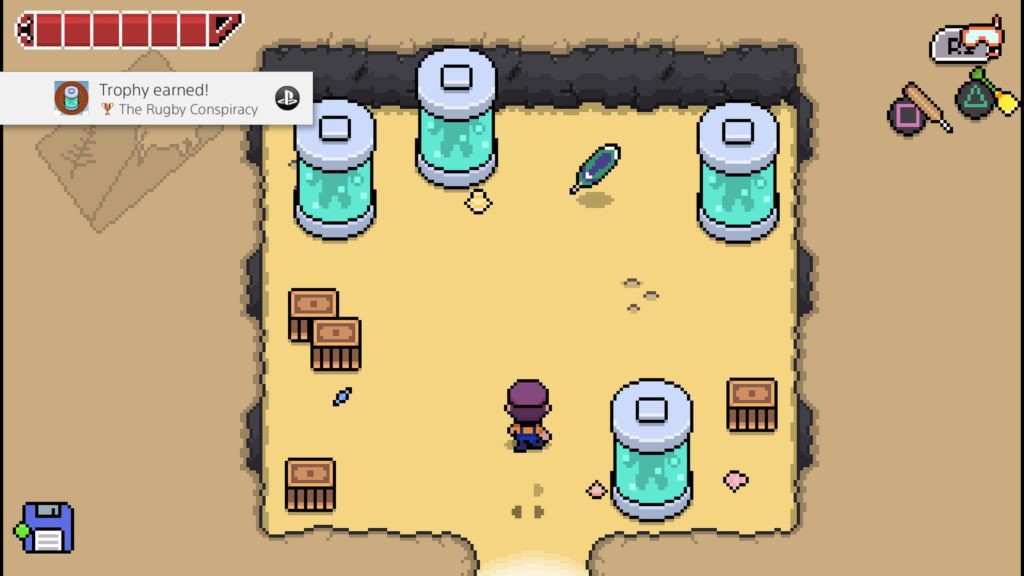
As for Vita fans, good news! Reverie plays smoothly on the Vita as well! It’s a great port, though the lack of the PS4’s center button is a bit of a hassle. I liked the layout of the PS4 controller slightly more than the Vita’s control scheme. Again, only a minor complaint, as the game is fun in both portable and stationary versions! In fact, the smaller screen makes the graphics look just a hair tighter on the Vita than on the PS4. Conveniently, if you have both a PS4 and a PS Vita, Reverie is cross-buy too, entitling you to both versions. I was unable to discover if it was cross-play compatible however. Assume not just in case. And cross-buy isn’t the only good news concerning retail releases of Reverie! Eastasiasoft, the publisher of Reverie, is releasing physical limited editions of both the PS4 and the PS Vita versions of the game through Play-Asia! The limited physical release consists of the game, box, printed manual, world map, soundtrack, and numbered certificate. As of the writing of this article, the release of Reverie Limited Edition is less than two days away, and Eastasiasoft is only printing 3000 copies each for the PS4 and Vita at a very reasonable $34.99 US price point with free shipping. The link to the purchase site can be found here. Eastasiasoft limited releases tend to sell out fast if the games are good, so fair warning. I’ll certainly be grabbing both versions for myself!
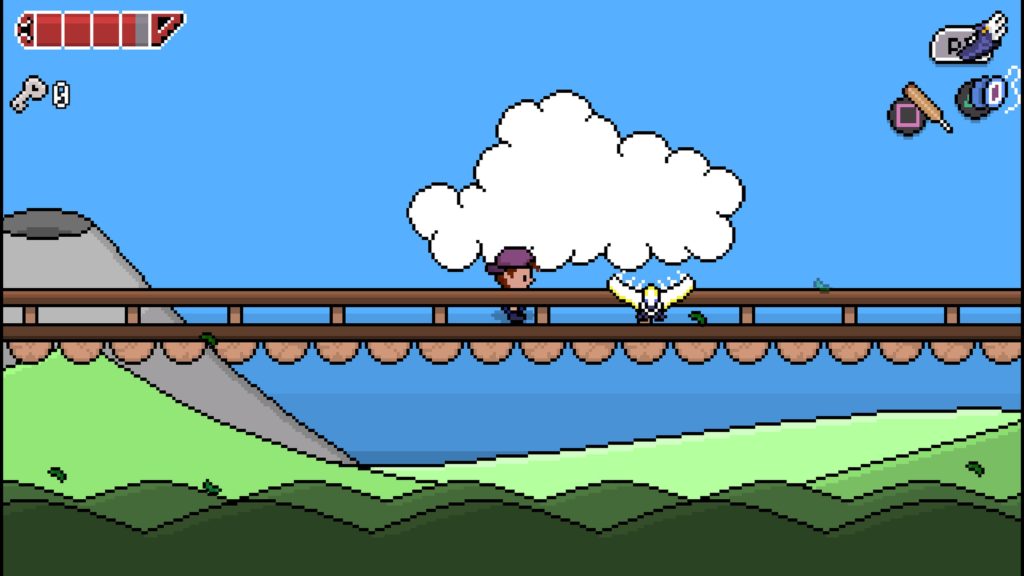
Ultimately, Reverie is a game that’s both retro and modern at the same time and it works. It’s fun to play, interesting, and looks great! It might not have the greatest soundtrack ever, but it isn’t bad, and it’s simply a solid game all around. It’s hard to make it in the indie scene these days, and it’s even harder to stand out. Reverie certainly manages to do so however. The last time I was this enamored with an indie game, it was probably Axiom Verge (nod to Thomas Happ!) and we all know how fantastic that was! You really can’t go wrong with this one, especially if you like Zelda-esque adventures. Kudos to Rainbite Limited, as this is the adventure genre done right!

This review was based on both the PS4 and PS Vita versions of the game running on a PS4 Pro and a PS Vita Slim respectively. Reverie was provided free as a full digital version by the publishers for this review. All images are direct screen captures from the PS4 and are property of the copyright holder(s).


Sounds like a must, at least to check out. Pity it’s not on PC.